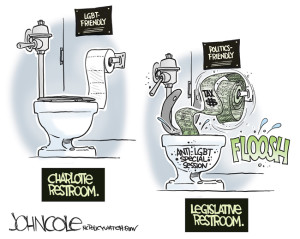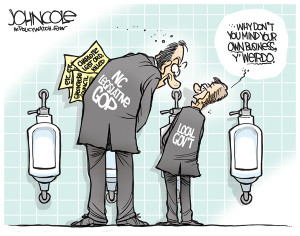Rasmussen (2006) invokes Foucault’s notion that identity politics and identities can be used for the affirmation of rights, but may be deployed for more sinister ends. In “refusing existing lifestyles” (Jagose & Halberstam, 1999), Jagose and Halberstam show value in “proliferating sexual and gender identities as a strategy to disrupt regulatory hetero-normative practices and “reimagine[s] the complex set of relations between sexuality, gender, race, and class” (Rasmussen, 2006).
Early in Rasmussen’s work, she explores the victim narrative of LGBTQI* individuals in schools and identifies the discourses of protection that are written about in teacher education matierals that emphasize alienation and isolation. She also discusses the heralded coming-out discourses that focus on heroic tales and celebratory narratives, that fail to represent the inadequacies of terms and the lived experiences of people outside of that narrow window of identity that that discourse seems to priviledge.
Binaries are a simplistic form of categorization and understanding for much more complex and complicated subjects. Rasmussen identified the existence of the in-out dichotomy as a “powerful narrativization of sexual and gender identity” and further states that “sexual and gender binaries… are the linchpins of heteronormativity.”
Heteronormalization and heteronormativity are concepts that reveal the expectations, demands, and constraints that are produced when heterosexuality is seen as normative within a society. This can show it itself through beliefs such as the so-called natural binary of the existence of men and women, and privileges the sexual relationships of one man and one woman being normal and natural, which is the “counternarrative of conservative religion.”
February 28, 2016: The Charlotte City Council voted on a non-discrimination ordinance. The non-discrimination ordinance aims to amend the city code, adding marital status, familial status, sexual orientation, gender identity, and gender expression to the list of protected characteristics in commercial non-discrimination, public accommodations, and passenger vehicles-for-hire ordinances. The council voted in favor of the ordinance by a 7-4 vote. Governor Pat McCrory reached out to council and has said that any ordinance that would allow a male anatomy to enter a women’s restroom or locker room would likely prompt immediate state legislative action.
The North Carolina “Bathroom Bill”
Foucault (1982) outlines “three moves of objectification that ‘transform human beings into subjects: (1) dividing practices, (2) scientific classification, and processes of subjectivization'” (Rasmussen, p. 75) to categorize, distribute, and manipulate.




